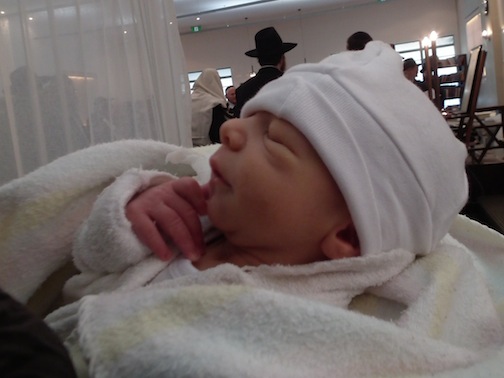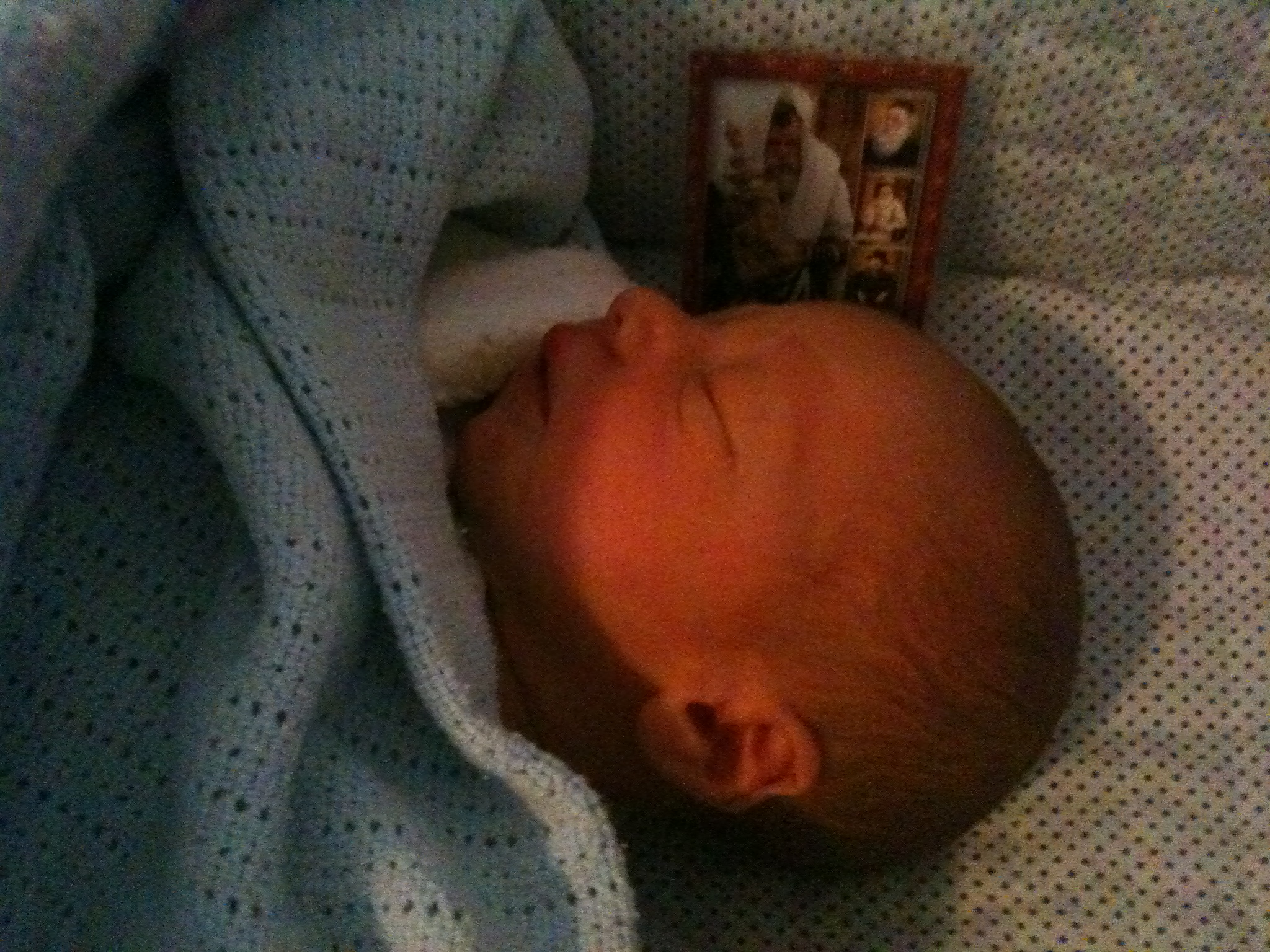Rabbi Ben’s mother has returned to Canada from her Australian visit. It was wonderful to have her here for the birth of our son Akiva and we will miss her now that she is gone. We had a great time and she taught us both so much. So I thought I would share a little d’var Torah from the Traveling Rabbi’s mum with you all.
We often hear that Hashem loves us like a father. Why like a father? Why not like a mother? After all, it is a mother who nurtures us. It is our mother who gives of her entire being, her entire body. She feeds us. She cares for us. The mother represents the ultimate in nurturing.
Imagine a typical day in the life of the mother of a newborn (e.g., me). Mommy is home all day with the baby. The baby is screaming and crying for hours (fortunately right now Akiva is being quiet and sweet and way too cute, but he does do his fair share of kvetching in true Jewish form). Mommy has to deal with the crying all day (or the whining of older children). Mommy has to wake up at all hours of the night to feed the baby, to console the baby, to change the baby. Mommy spends all day long changing dirty nappies (especially fun are the ones that leak all over) and changing dirty clothes (even her own, especially when her son has really good aim and waits to pee until being changed). Mommy has to clean the baby (and herself), bathe the baby, and do heaps of laundry (often due to leaky nappies or baby boy’s exceptionally good aim when peeing). Moms love their babies more than can be imagined, but by the end of the day, mom is tired, mom is dirty, mom is hungry, mom is just plain worn out.
Then in walks Tatty. He’s been at work all day long. He hasn’t seen his baby/children since he left that morning (or possibly all day, depending on how early he leaves for davening and work). He comes in and his heart is overwhelmed with love for his child(ren). He automatically forgives them everything. He forgives them for the screaming (he didn’t have to listen to it), he forgives the dirty nappies (he didn’t have to change them), he forgives the good aim with pee (he’s probably kind of proud of this anyway), he forgives the dirty laundry (he’s happy his smelly socks got washed in the bargain), he forgives the baby everything.
That’s why Hashem is said to love us like a father. We’re all just children, all of us babies in our behavior. We don’t follow the Torah completely, we don’t do what He wants of us. When it comes to what Hashem wants of us, rather than doing what He wants, we pretty much do what babies do: burp, fart, cry, scream, poop, pee, and spit up. If G-d loved us like a mother, He would be exhausted by the end of the day.
Instead, G-d loves us like a father. All day long we didn’t daven like we should have? It’s ok, He forgives us. All day long we played games instead of learning Torah? It’s ok, He forgives us. All day long we’ve failed to live up to the expectations laid out for us in the Torah, but it’s ok… Hashem forgives us. When our Father walks in the door at the end of the day, He is happy to see us there waiting for Him, reaching for Him, smiling at Him. When He walks in and we reach out to Him, run to Him, beg Him to pick us up and hold us, then He is ready to forgive us all our misdeeds during the day.
And that is why Hashem loves us like a father.
Read More







